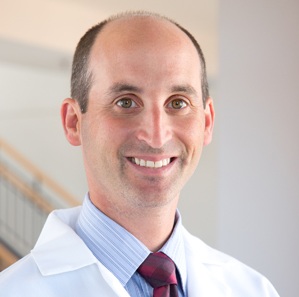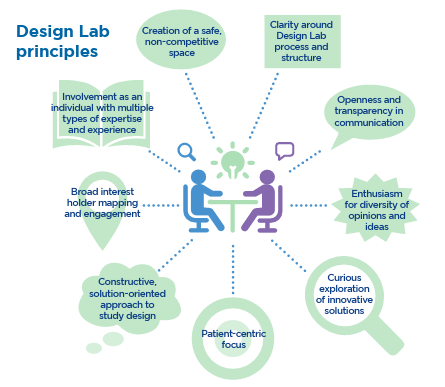
“We’re here to connect researchers with the tools they need to succeed, and we can help at any phase of the research process.”
Daniel Weiner, MD, MSTufts CTSI Lead Navigator
Overview
The National Institute for Health defines team science as “collaborative efforts to address a scientific challenge that leverages the strengths and expertise of professionals trained in different fields.”
Clinical and translational research (CTR) is most relevant and impactful when it addresses issues important to patients, communities, clinicians, caregivers, and others who make medical and health decisions. These stakeholders also provide perspectives, knowledge, skills, and awareness of unmet needs that can stimulate productive questions and focus us on crucial evidence gaps. Fully accruing these benefits in CTR requires having this range of individuals on the research team, what we term “broadly engaged team science.” This means research questions are posed, meaningful outcomes defined, research conducted, findings interpreted, and results disseminated by teams that include relevant stakeholders from the onset.
Broadly engaged team science enhances protocol development, speeds study enrollment, and improves and accelerates the adoption of research results into practice.
It also sustains an engaged, multidisciplinary research workforce, improves the transparency of research, and builds public trust. The Research Collaboration Team is the nexus of Tufts CTSI’s broadly engaged team science efforts.
Who is eligible?
Researchers looking to expand their work into new dimensions, disciplines, collaborators, or resources should contact us. If you have a project idea that involves team science, contact us; we will contact you if we have an opportunity for which we think you would be a good fit.
Available Expertise
The Research Collaboration Team, in conjunction with our lead and content area Navigators:
-
- Matches partner research strengths with available funding opportunities.
- Assembles teams to apply for grants.
- Conducts grant critiquing services also known as “Research Studios” to help junior researchers hone their research proposals.
- Brings together researchers, stakeholders, and community representatives with high collaborative potential to spawn new research ideas and projects at bi-annual Team Science Summits.
- Assists in the development of training in Team Science.
Services for Investigators and Teams
Navigator Consultations
Tufts CTSI’s Navigators are a team of experts in every phase of translational research who connect researchers with resources, services, mentors, and collaborators throughout the research process.
Our Navigators are well-versed in everything Tufts CTSI has to offer, and can connect you to expertise in:
- The full translational research spectrum
- Clinical trial support
- Community-based participatory research approaches
- Finding collaborators
- Grant submissions
- Industry partnerships
- Lab support
- Quality improvement methods
- Study design, biostatistics, and epidemiology
- Methodological approaches
- Databases and data management
- Training and education opportunities
- Translating research to public health and policy
Not sure what you need or where to start? Submit a service request and we’ll make sure the most appropriate expert gets in touch with you.
Research Studios
Studios are one-hour roundtable discussions organized around a specific research project. We bring together a panel of faculty, research professionals, and relevant subject matter experts from across CTSI’s network to provide investigators an accessible and informal setting for multidisciplinary feedback and advice on anything from grantsmanship to experimental design. Learn more here.
Collaboration Planning
Focused and systematic discussion of common organizational challenges to collaborative research can improve a team’s grant applications and help ensure optimal project execution. Beginning in 2024, we offer a facilitated 90-minute workshop on developing a formal Collaboration Plan for multi-disciplinary teams seeking funding or commencing work on a newly awarded project. Learn more here.
Not sure what you need or where to start? Submit a service request and we’ll make sure the most appropriate expert gets in touch with you.
Contact
To contact the Navigators, please submit a service request.
Cheryl London, DVM, PhD, DACVIM, Director of Research Collaborations
Daniel E. Weiner, MD, MS, Lead Navigator
Hannah Santos, MBA, Program Administrative Director
Nicholas Moustakas, MPhil, Research Development Specialist
Benjamin Wessler, MD, MS, Lead Navigator



